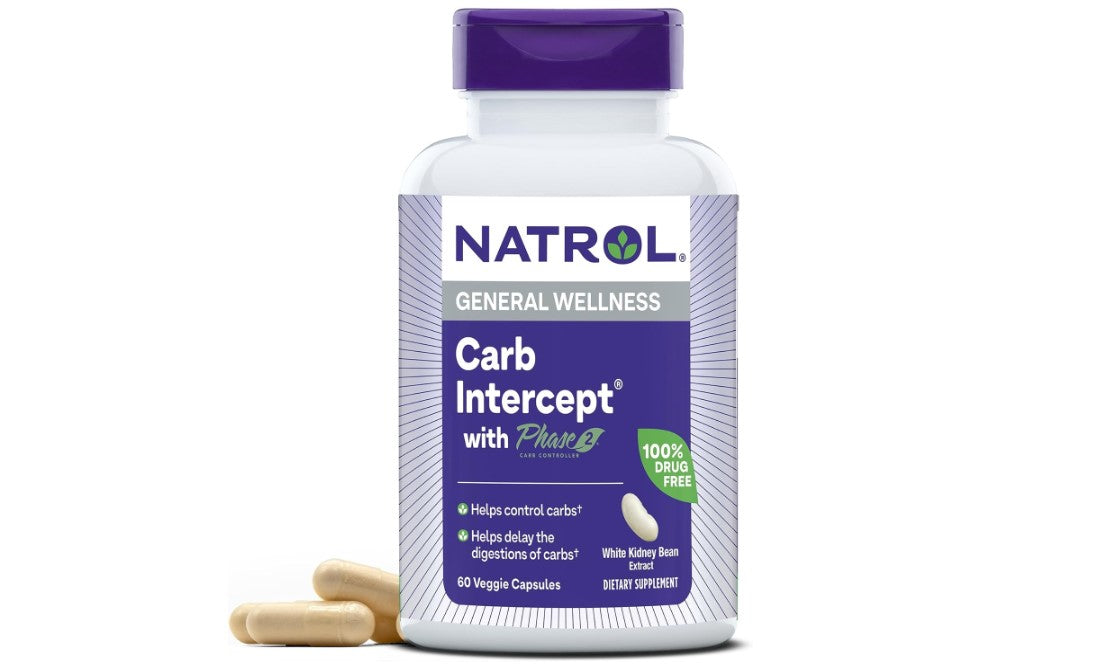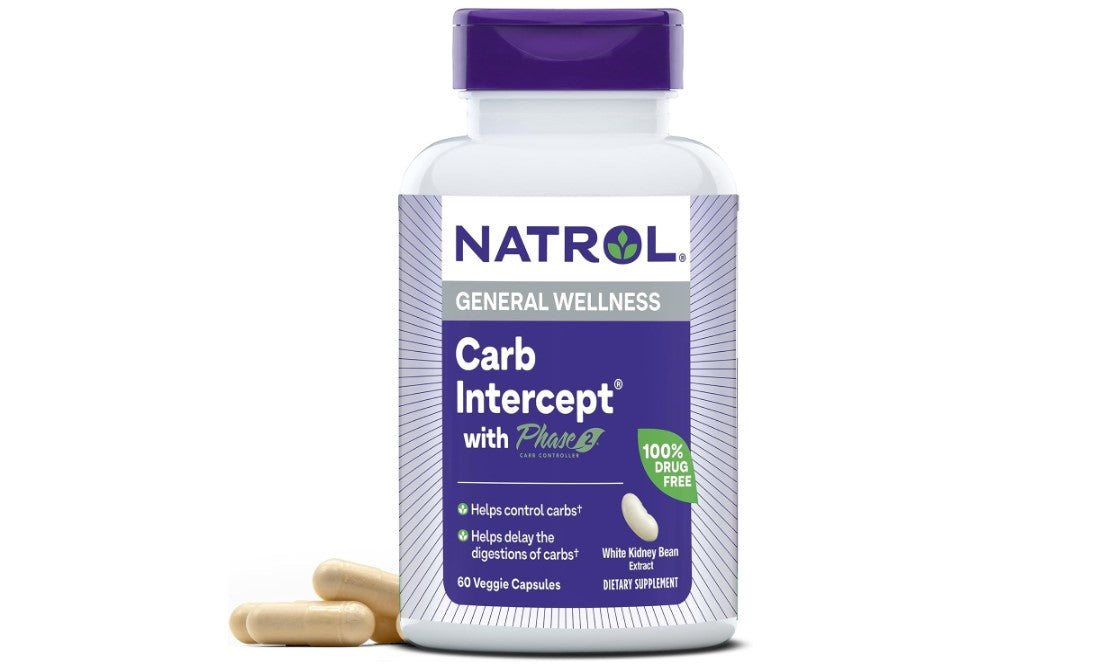
Natrol Carb Intercept Ingredients
White Kidney Bean Extract
A fairly exciting ingredient in weight loss, white kidney bean extract is where carb intercept gets its name from, as it contains bio-active ingredients that can inhibit the enzyme responsible for absorbing carbs. Alpha-amylase is the target here, and there's reportedly three A-amylase inhibitors present. The theory goes then that you can still eat as many carbs as normal, and just not absorb all the carbs. Makes sense, too many carbs is a fast road to weight gain so with this carb controller you can still eat carbs without gaining weight, and if you wanted to be losing weight it means you can eat a lot more carbs than a traditional diet.
See the problem here though is in the proof, not the theory. There's just not been that many studies on how effective white kidney bean extract is as a carb controller, and a lot of the studies that have been done has been conducted on animals such as rats and mice, which as much as we're sure they were thrilled they could still be a huge carb junkie without watching their figure, that doesn't really help us reach a scientific consensus on the effects a carb controller might have on the human body.
In the human studies, there's a few things we need to bring to light. First of all are the results, and though more research is certainly needed to be done, it does seem to be marginally effective, [1] with results ranging from a significant increase to weight loss or a very, very low reduction in body weight, all when compared to placebo groups. For an ingredient to really qualify as a "clinically tested ingredient" we'd need to see much more significant results than this, with a lot less variation as some studies really saw almost no discernible difference.
Now we have the dosing, and have to discuss the proprietary blend and confusing labelling used by Natrol. First of all, this is always a red flag when reviewing any weight loss or dietary supplements, as it obfuscates valuable information and just begs the question: why? If everything is dosed correctly then surely it would be proudly displayed so scrutinous reviewers weren't left guessing the worst. It just plain stinks of foul play, and is often deployed so companies can put potent active ingredients all over their labels for marketing purposes whilst housing small, cheap and ineffective doses of them.
The dosing that was found to be effective (in the studies that showed promise) started at 1000mg (and was mostly only effective at 2000mg [2]), whereas the entire contents of the phase 2 carb controller complex is 1,000mg, and contains Foodbound Chromium and Dibasic Calcium Phosphate as well as white kidney bean extract. This leaves the recommended dose just too low, and as much as you might be able to just take more of the pills, it's not something we'd recommend as you're just inviting side effects and at that point, isn't it just better to spend your money elsewhere? Then there's also the fact that more well regarded weight loss aids which use kidney bean extract tend to use higher density extracts which are the equivalent to 10grams of the compound in natrol. These also tend to contain glucomannan to help supress appetite in general such as hunter burn.
What's confusing though is how the label states it has 190mg of calcium, 40mcg of chromium and only then mentions the blend, which says it contains 1,000mg total and mentions all three ingredients. To make matters even more confusing, on the front of the label it says "1,000 mg per serving" so we're left with two reasonable conclusions to draw; It's either 1,000mg in total, and that's divided into 190mg total calcium, 40mcg total Chromium 809.96mg of White kidney bean extract, or it's 1,190.04mg total and we have the same separated quantities of Calcium and Chromium with them also being contained within the blend.
We're not jumping to conclusions here but it's important to point out that a quality supplement will present its formula in a transparent way to let the ingredients speak for themselves. How can a consumer make an informed decision on this? Just look at the lengths we've had to go to in order to present you the information as it could be interpreted, and what can we gleam from all of this? Well it's either complete incompetence or malicious, neither of which cast Natrol in a particularly good light.
Dibasic calcium phosphate
We'll move on quickly here and simply state that we did not find any studies advocating for the efficacy and use of dibasic calcium phosphate as a weight loss tool. It's inclusion here is for the light health benefits provided by getting enough daily calcium. [3]
foodbound chromium
We'd like to start this section by just bringing up that "foodbound" chromium doesn't really tell us any useful information about the type of chromium being used here, and annoyingly it does make a difference. Most trials conducted have used Chromium Picolante, and others used Chromium-enriched yeast or Chromium Nicotinate. What research suggests is that supplementation with Chromium reduces body weight and body fat percentage to a very small but still statistically significant extent, especially so when supplementing Chromium Picolinate.
So it's looking like it might help a bit, and doses found results at a range of 200 to 1,000 mcg daily. [4] Depending on how you've interpreted the confusing labels this is either somehow still drastically under dosed at just 40mcg or is probably dosed correctly within the proprietary blend.
References
1 - https://www.ncbi.nlm.nih.gov/pmc/articles/PMC7284421/
2 - https://www.ncbi.nlm.nih.gov/pmc/articles/PMC7063375/
3 - https://ods.od.nih.gov/factsheets/Calcium-HealthProfessional/
4 - https://ods.od.nih.gov/factsheets/chromium-Consumer/
- Choosing a selection results in a full page refresh.
- Opens in a new window.
